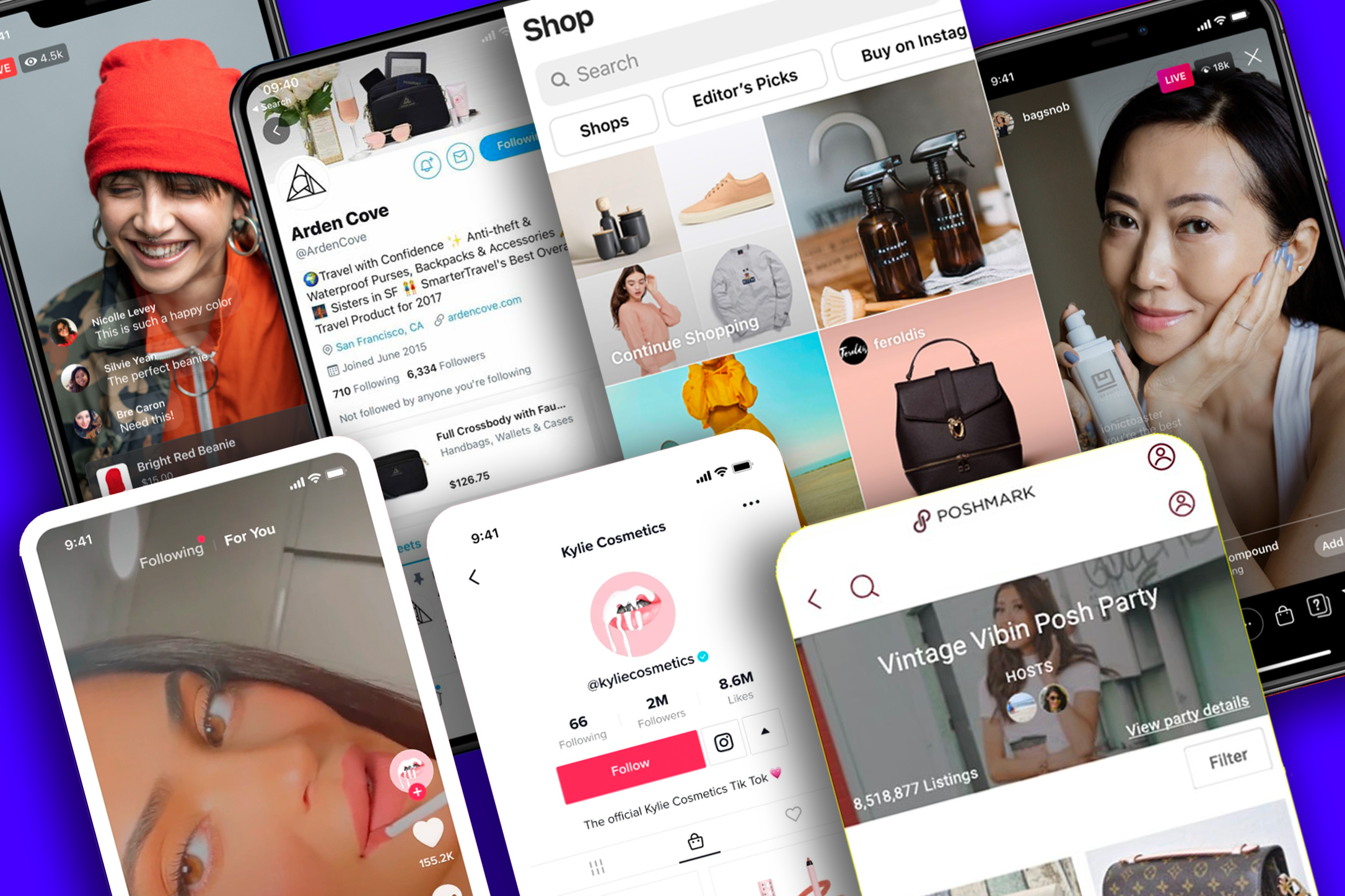How iCommerce is Reshaping the Future of Online Shopping

Claudia Mastromauro explores iCommerce, the fusion of influencer marketing and online shopping.
When was the last time you made a purchase? Chances are, it was influenced by someone you follow on a social platform. If that rings true for you, you're not alone. The era of social commerce is upon us, and it's reshaping the way we buy. With individuals spending an average of three hours daily on social media and sales via these platforms predicted to surpass a billion, the landscape of shopping has drastically changed.
This year alone, over 80% of consumers made purchases based on influencer recommendations. This isn't just a passing trend; it's a testament to the power of influencer marketing and its burgeoning impact on our shopping habits. The focus for years has been on impressions and engagements, the upper funnel metrics. However, today, the emphasis is shifting towards sales, pushing influencers further down the sales funnel.
Enter iCommerce, a term coined by the Ogilvy Influence team. Defined as the meeting point of social commerce and influencer marketing, 2023 is poised as the year of iCommerce. This innovative approach seamlessly merges the convenience of social commerce with the trust and personal touch of influencer marketing, making it one of the most effective online sales strategies. It's reshaping how we structure influencer programs, from determining payment models to redefining KPIs and strategising for more authentic, human-centric influencer approaches.
TIKTOK AND THE "MADE ME BUY IT" MOVEMENT
Consider TikTok's hashtag "TikTok made me buy it", which has amassed a staggering 80 billion views. Such hashtags, combined with the platform's product discovery features, have caused long-standing products like CeraVe to sell out entirely. TikTok has significantly boosted their sales, clearing out stocks. Meanwhile, tools like Instagram's Checkout and Pinterest's shoppable pins have revolutionised online shopping. These innovations allow consumers to find and purchase products seamlessly, often without exiting the platform. In many markets, including the UK, live shopping is on the rise, reflecting the evolving digital commerce landscape.
The world of e-commerce has seen significant shifts, and as we transition into the era of iCommerce, we witness a revolutionary online shopping paradigm where narratives are shaped not by brands but by influencers, grounded in trust.
In today's age of information overload, where consumers grapple with a myriad of options, authenticity emerges as the beacon. Consumers today value genuine experiences over scripted ads. Influencers, with their real-life narratives and genuine interactions, have become the new-age brand ambassadors, bridging the trust gap.
Case in point is the rise of CeraVe, which, thanks to influencers, particularly on TikTok, has become a household name. These influencers shared their genuine skin transformation journeys, making the brand's narrative authentic, relatable, and powerful.
However, the digital marketplace is ever-evolving. While platforms like Instagram and TikTok continue to be dominant players, new platforms offer unique opportunities to engage and captivate. In the vast universe of digital interactions, even micro-influencers, with their niche audiences, are proving to be engagement powerhouses.
In iCommerce, it's not just about showcasing a product but about weaving it into a compelling story, making the product an experience, a lifestyle, or a solution. This narrative-driven approach doesn't just sell; it educates, resonates, and creates lasting impressions.
However, as important as storytelling is, technology is its equal partner. The introduction of augmented reality offers influencers the ability to provide immersive experiences. But at the core remains the influencer, the bridge between brands and consumers.
BEST PRACTICES FOR NAVIGATING ICOMMERCE
Looking ahead, iCommerce's future is even brighter. Live streaming is breaking barriers, making shopping more inclusive and dynamic. Real-time interactions and sales, as seen with Alibaba's success, are redefining the shopping experience.
To navigate this intricate world of iCommerce, here are some best practices:
- Goals at the Forefront: Brands must set clear objectives, be it visibility, engagement, or direct sales.
- Champion Authentic Creativity: Encourage influencers to create genuine content that resonates and engages.
- Platform Precision: Each platform offers unique opportunities. Tailor strategies to harness their strengths.
- Flexible Negotiations: Stay updated with evolving influencer payment models.
- Track Religiously: Invest in robust tracking systems to measure every essential metric.
- Adapt and Evolve: Stay agile. If a strategy doesn't yield results, be ready to pivot.
As we stand on the precipice of this new age, it's essential to grasp the magnitude of iCommerce's potential. A recent survey suggests that by 2025, nearly 90% of consumers will rely on influencer-driven narratives for their purchasing decisions, further amplifying the importance of genuine influencer partnerships in the commercial landscape. This powerful fusion of human connection and digital innovation is redefining e-commerce, making it imperative for businesses to adapt, embrace, and pioneer in the world of iCommerce. The challenge is set: forge genuine relationships, craft compelling stories, and harness the power of iCommerce to not just capture but captivate the global market. The future is here, and it is interactive, immersive, and influencer-driven.
ABOUT THE AUTHOR:
Claudia Mastromauro has over a decade and a half experience in digital advertising, with pivotal roles at eBay and Lastminute.com. She is an e-Commerce & Influencer Marketing specialist, business growth strategist, and a distinct voice in Engage MarTech. Claudia's insights are both seasoned and fresh.


